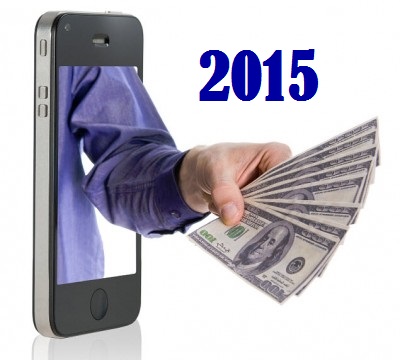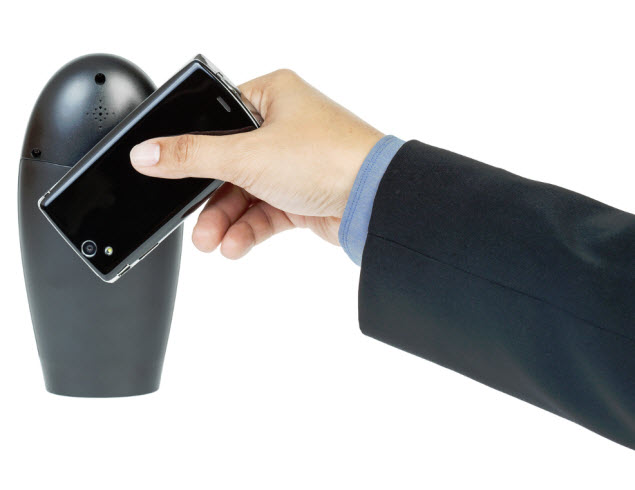Mobile commerce may become more refined in 2015
The future of mobile payments is still somewhat uncertain, despite the growing popularity of mobile commerce. In 2015, there may be many changes seen in the mobile payments space, especially as new services become available and more people become comfortable with the idea of paying for goods and services from their phones. Security may become a major issue in 2015 as organizations specializing in mobile commerce begin to take steps to ensure that consumer information is safe from exploitation.
Apple Pay may serve to bolster the power of the mobile payments industry
Much of the conversation regarding mobile payments is likely to revolve around Apple Pay this year. According to a recent report from Forrester Research, the new payment service from Apple is expected to energize the mobile market. The report suggests that Apple Pay will drive the adoption of new wearable devices that have been developed by Apple and help bolster mobile payments overall. The report predicts that mobile payments in the United States will grow to $142 billion by 2019, with new mobile services, like Apple Pay, making it easier for consumers to spend money through their mobile devices.
Security will become a major priority in 2015
 Security budgets are likely to increase across numerous industries this year. Many businesses have begun to take security more seriously because of the high-profile data breaches that were seen in 2014. These companies are investing more in security measures, especially those designed for the mobile space. The report from Forrester suggests that security spending will increase this year, but so too will the number of data breaches.
Security budgets are likely to increase across numerous industries this year. Many businesses have begun to take security more seriously because of the high-profile data breaches that were seen in 2014. These companies are investing more in security measures, especially those designed for the mobile space. The report from Forrester suggests that security spending will increase this year, but so too will the number of data breaches.
Consumers are becoming more comfortable with mobile payment services
Consumers are expected to become more confident in mobile commerce in the coming year. New services are being launched that include features that consumers have been demanding. These services are also becoming more secure and offering better shopping and payment experiences. As such, consumers are becoming more comfortable with using these services to pay for the products that they are interested in.
Country’s largest mobile payment company has launched
A new competitor has emerged in the mobile commerce space. Taiwan Mobile Payment Co., which is now Taiwan’s largest mobile commerce platform, has officially launched with the support of 32 of the country’s major financial institutions. The platform supports NFC-based mobile payments, allowing consumers with smartphones and tablets to make payments in physical stores that have NFC-enabled point-of-sale systems installed. The new platform may be welcome among consumers that have been looking for a new mobile payment service for some time.
New platform will leverage NFC technology to process payments and has strong support from Taiwan’s financial institutions
The mobile payments being made through the new platform will be processed through Taiwan Mobile Payment’s trusted service manager. This system will secure the financial information being used by the platform to authenticate payments. The platform will also support payments made through Visa and MasterCard and can be used to make purchases at more than 30,000 stores throughout the country. The platform also has strong support from various financial institutions, making it more accessible to a wide range of consumers.
Taiwan continues to grow as a prominent mobile commerce market
 Taiwan is quickly becoming a very prominent mobile commerce market. Two other services have already emerged in the country, but consumers have been demanding a larger, more capable service for some time. Currently, Taiwan Mobile Payment is the largest mobile payment service provider in Taiwan and has been accredited by both Visa and MasterCard.
Taiwan is quickly becoming a very prominent mobile commerce market. Two other services have already emerged in the country, but consumers have been demanding a larger, more capable service for some time. Currently, Taiwan Mobile Payment is the largest mobile payment service provider in Taiwan and has been accredited by both Visa and MasterCard.
New service relies on NFC technology in order to facilitate mobile transactions made from devices equipped with NFC chips
The new mobile commerce platform is expected to work with 20 different smartphone models, most of which are Android devices. These devices are equipped with NFC technology, allowing them to interface with payment platforms that also use this technology. NFC currently makes up much of the backbone of the mobile commerce world. Some payment services have opted to avoid using NFC technology to make their platforms more accessible to those that do not have NFC-enabled mobile devices.
 Security budgets are likely to increase across numerous industries this year. Many businesses have begun to take security more seriously because of the high-profile data breaches that were seen in 2014. These companies are investing more in security measures, especially those designed for the mobile space. The report from Forrester suggests that security spending will increase this year, but so too will the number of data breaches.
Security budgets are likely to increase across numerous industries this year. Many businesses have begun to take security more seriously because of the high-profile data breaches that were seen in 2014. These companies are investing more in security measures, especially those designed for the mobile space. The report from Forrester suggests that security spending will increase this year, but so too will the number of data breaches.
 Taiwan is quickly becoming a very prominent mobile commerce market. Two other services have already emerged in the country, but consumers have been demanding a larger, more capable service for some time. Currently, Taiwan Mobile Payment is the largest mobile payment service provider in Taiwan and has been accredited by both Visa and MasterCard.
Taiwan is quickly becoming a very prominent mobile commerce market. Two other services have already emerged in the country, but consumers have been demanding a larger, more capable service for some time. Currently, Taiwan Mobile Payment is the largest mobile payment service provider in Taiwan and has been accredited by both Visa and MasterCard.